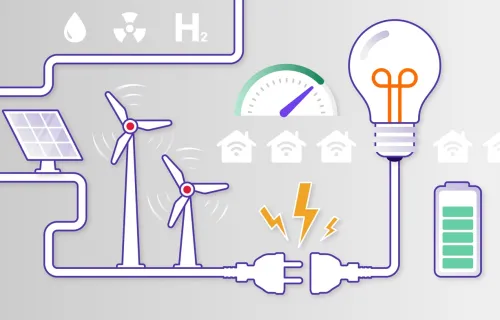CGI, Sumitomo SHI FW (SFW) and Vantaa Energy are developing a completely new solution in Finland to reduce the environmental impact of energy production. Already in the first phase of the project, the Martinlaakso biopower plant’s CO2 emissions were reduced by more than 3,000 tons per year by using data, analytics and artificial intelligence.
“Improving energy efficiency, reducing fossil fuel consumption, decreasing CO2 emissions and achieving savings on operating costs were goals we set out to pursue together. What’s special about this project is it was not about new filters, boilers or other mechanical equipment. Rather, the main focus was on data and tools for analytics and artificial intelligence,” says Jukka Toivonen, CEO of Vantaa Energy.
Vantaa Energy will give up fossil fuels on a fast schedule by 2026. Fossil-free energy production is made possible by the use of energy from waste treatment, seasonal storage of heat and geothermal and solar energy. In addition, more efficient bioenergy production has been enabled by using artificial intelligence.
The pilot-project developed a cloud-based analytics service that combined data from different power plants to create artificial intelligence algorithms and models. In addition, service designers interviewed and observed power plant operators and their daily routines in the Martinlaakso district of Vantaa, Finland, to identify and develop operational processes.
“Using service design, we found a solution model in which the boiler’s operational capability was made visible to operators with the help of real-time data analytics. The improved visibility increases the optimal use of the boiler. Use of biofuels could be increased while use of fossil fuels could be decreased. As a result, both CO2 emissions and operating costs were reduced,” says Jani Petäkoski, responsible for industrial Internet of Things and analytics solutions at CGI in Finland.
Vantaa Energy, together with solution providers CGI and SFW, consider the project to be a significant development step, and the cooperation between the parties will continue.
“This project is an excellent example of the value of cross-industry cooperation and how, in just 14 weeks, a completely new type of service can be used to increase business efficiency while curbing climate pollution. The solution processes and visualizes the data in a way that is not yet possible in traditional control systems,” emphasizes Ilkka Koskinen, Director of Digital Services at Sumitomo SHI FW.
During the project, SFW was responsible for developing the algorithm needed for optimization. CGI was responsible for service design expertise and the implementation of a cloud solution for the Microsoft Azure environment, ensuring high data security and protection.




